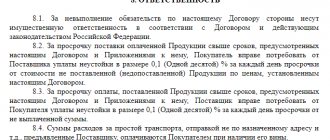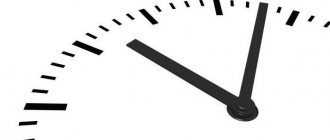Civil Procedure Law
First of all, it is worth finding out what the law says about the debate between the parties. This issue is addressed in Article 190 of the Civil Procedure Code. It says here that judicial pleadings are the speech of all persons who take part in the proceedings. The law stipulates that in this part representatives of the parties can safely defend their interests. In civil proceedings, it is customary that the plaintiff speaks first. Then the floor is given to his representative. Next, the right to speak passes to the defendant: First of all, he speaks in person, and then only his representative. Since this is the final stage of the proceedings, each participant in the process has the opportunity to once again emphasize their own arguments and try to refute the opponent’s arguments.
Separately, the Code of Civil Procedure of the Russian Federation stipulates the rights of third parties. If such citizens have independent demands directly related to the subject of the dispute, which is being examined in civil proceedings, they can also take part in the debate between the parties. Their representatives are vested with similar powers.
There is an indication about the rights of third parties who participate in the proceedings without putting forward independent demands. They too can speak out in the demands process. In this case, a certain order must be followed, namely: the third party/his representative will be given the floor after the party whose position they support.
It should be added that, according to the Code of Civil Procedure of the Russian Federation, the first to act are either citizens who have applied to the judicial body for the protection of rights/interests, or the prosecutor (representative of a government body, organization). When everyone has expressed their point of view, you can start a discussion and make remarks about what you heard. However, according to the law, the final word remains with the defendant (his representative).
Rights of the defendant
The Russian Constitution and the Code of Criminal Procedure define the following rights of the defendant:
- Right to protection. A state lawyer is provided free of charge, but at his own request the defendant can refuse his services, hire another lawyer, or defend himself.
- Familiarize yourself with the protocol of the trial, including making copies of it.
- Provide evidence of innocence. The court must consider them, accept or reject them.
- Submit challenges and petitions.
- Refuse to testify against yourself and loved ones.
- Participate in debates between the parties.
- Give the last word.
- Appeal the verdict within the prescribed period.
The defendant makes his last speech after the parties have debated. After hearing his word, the court leaves to make a decision.
Legal practice and the meaning of the debate
Not all lawyers share the same opinion about the advisability of participating in judicial debates. Some experts are confident that by this stage of the proceedings the judge has already formed a certain view of the case. Therefore, you should not rely on debate between the parties, or hope that discussion of the issue will allow you to persuade the representative of the law to your position. More than one example from judicial practice shows that not everything is so simple and unambiguous.
Read also: How to make a request about the progress of enforcement proceedings: sample
It is not uncommon when, during the examination of evidence, a new vision of the conflict is revealed to the plaintiff or defendant. This is why some claimants abandon their own claims at this stage of the proceedings. There are also precedents when the defendant admits all the claims of the plaintiff.
There are examples when lawyers recommend that their clients refuse to argue. Alternatively, they are advised to report that the person is simply sticking to his previously stated position. Or you can read the lawsuit (response to it), starting with a respectful address to the judge. But in this case, you really shouldn’t hope that the court will reconsider the existing impression of the case.
Many lawyers are convinced that the debate between the parties should not be ignored, nor should they be taken lightly. After all, history knows precedents when the court makes an undesirable decision on a claim, although during the proceedings it seems that it was ready to support the claim as a whole or in some part of it. Do not forget about the purely human factor: the judge may simply make a mistake or follow the lead of the party, which will more colorfully and substantively confirm its position at the final stage of the consideration of the case.
Do no harm: top phrases that a lawyer should not say in court
× In a trial, you should not read the text of the speech from the page: “The economic court (judge such and such) is considering a case (number such and such) on the claim of LLC “A” (hereinafter - the plaintiff) against LLC “B” (hereinafter - defendant)..."
It is boring, looks extremely unconvincing, wastes the judge’s procedural time and is therefore perceived negatively. It is important to learn to speak concisely, simply and clearly.
+ It is better to exclude rhetorical questions, philosophical reflections and references to the masters of the doctrine of law from the speech.
There is no need to turn a court hearing into a theatrical performance. As a rule, judges perceive this negatively. If you have something to say, you should clearly and consistently present the main arguments, without going beyond the scope of the matter.
If a lawyer quotes Shakespeare and Machiavelli in a court hearing, it looks unprofessional and is perceived as a lack of a clear and strong position.
O.Yu. Nikolaev
partner of the Law Office "VMP Vlasova, Mikhel and Partners"
× “The opponent’s actions are contrary to the Constitution”
The Constitution does not regulate the procedure for specific actions of citizens or business entities. Therefore, references to the principles enshrined in the Constitution are not taken seriously.
+ “The opponent’s actions contradict such-and-such an article of such-and-such a normative legal act” (indicate a specific norm)
Indication of a specific violation with reference to the norm looks more convincing than general phrases and can form the basis for a court decision.
V.M. Angelic
Candidate of Legal Sciences, lawyer at the Law Firm "Braginets and Partners"
× “Please take into account when making a decision that another judge in a similar case agreed with me and satisfied the claims”
In a pending case, the opinion of another judge has no significance. Otherwise, the provisions of Art. 108 COD criteria of relevance, admissibility and reliability.
+ “High Court, I know that we do not have case law, but such and such a court, under similar circumstances, made such and such a decision. I believe that judicial practice should still be uniform."
In this case, it would be correct to briefly describe the previous circumstances and present the decision for review or inclusion in the case.
The court decision is made in the name of the Republic of Belarus. Therefore, it is not entirely correct to refer to the opinion of a specific judge, although the decision is signed by a specific individual.
At the same time, the uniformity of judicial practice is of great importance for the legal system. Therefore, at the stage of judicial debate, justified references to court decisions with similar circumstances are quite appropriate.
D.V. Laevsky
lawyer of the Minsk City Bar Association
× You should not utter phrases like “It is already clear what decision will be made in the case”, “If the court intends to be guided by the law, then it must decide on...”, “If a decision is made on... we will appeal it”
It is hardly reasonable to tell a court that its decision is obvious, predictable, expected or known in advance, even if the court appears to be biased. It is equally short-sighted to demonstrate that a party is already preparing to appeal a decision that has not yet been announced. Such statements have the opposite effect, because they actually publicly question the impartiality and objectivity of the court.
Remember that there are cases in which the court can really have doubts throughout the entire process, especially if such disputes or circumstances have not been encountered in judicial practice. Therefore, there is always a possibility that the court’s opinion will change at the last moment.
+ You should speak at the meeting not about the future conclusions of the court and not about what you intend to do if you disagree with these conclusions, but about how justified and legal the party’s arguments are, i.e. yours or your opponent's.
In attempts to anticipate or predetermine the court's conclusions, you can make mistakes in forecasts and cause negativity towards yourself and, as a result, towards the client. The same applies to cases when a participant in the process tries to verbally force the court to make a certain decision. Such tactics are initially unsuccessful. It would be more effective to present in writing clear evidence of the inconsistency of the opponent’s arguments, not forgetting about the subject matter and the distribution of the burden of proof. Then the court will be able to use your arguments in its decision.
Recommendations from professionals
To win in a civil or any other case, you can study a clear example of how debates proceed at a court hearing. Based on the successful speeches of others, it will be easier to compose a speech for yourself. Experienced lawyers recommend drafting it in such a way that the speech actually represents a draft court decision. What is meant is not so much its description as its motivation.
The lawyer’s professionalism plays a significant role in the debate. On his part, legal analysis is mandatory. It should be:
- verified from a logical point of view;
- be based on legislative acts and legal norms.
The lawyer examines the evidence that was presented during the trial. He also looks for weak spots in his opponent’s arguments and reinforces his own position.
Most often, problems with speech arise in arbitration or civil proceedings, since the judge does not give the parties time to prepare. But it should be recalled that all participants in the case have the right to apply for a break. Even if it is only a few minutes, you will already be able to concentrate and think about how to structure your speech.
The defendant's speech in his defense
A well-written defense speech by the defendant can help win the jury over to his side if he can make convincing arguments when defending his position and point out circumstances in order to mitigate liability. The time for speaking is not limited so that the accused's right to defense is not violated.
My attitude towards health has also changed. I decided to never drink alcohol again. Now every morning I do exercises and read a lot because... relatives give me books. I would recommend to many guys to play more sports, read and generally keep themselves busy as much as possible, then life becomes interesting and entertaining.
In case of disagreement
Situations in life are different, and not every person who finds himself in the dock is guilty of what he is accused of. The question here is different: how to prove your position to the court and what needs to be said so that all participants in the process believe that the accused really did not commit a criminal act? In practice, proving the innocence of a person against whom evidence has been collected confirming the opposite is quite difficult, but possible.
The accused must make a speech after the debate that would be convincing to the judicial body. A sample of the last word of a defendant in a criminal case may be as follows:
"Your Honor!
I have already said earlier that I did not commit the crime of which I am accused. In addition, my defense lawyer presented evidence confirming my words (be sure to describe which ones). Witnesses (specify who) also said that they did not see me at the scene of the criminal act.
(Then it is necessary to present more convincing arguments for the court so that the authority really doubts the guilt of the alleged attacker).
I simply could not do what I am accused of. In addition, I have no criminal record, I work and study, and provide for my children and parents on my own.
At the end of the speech, the defendant may also appeal to the court with a request that an acquittal be pronounced against him.
Prohibitions
The judicial body cannot fail to provide the defendant with the opportunity to have the last word. Otherwise, this will be considered a violation of the Code of Criminal Procedure and will be grounds for canceling the sentence.
Here it must be noted again that the accused cannot be limited in time in his final statement.
Due to the fact that the last word of the defendant in court, a sample of which must be studied very carefully, is important for the case and quite often affects the sentencing, the Code of Criminal Procedure establishes guarantees during its utterance.
How to apply
The defendant composes the text for himself, because only he will speak, and the rest of the participants in the trial must listen to him. Therefore, the speech must be written on paper (if it is long enough) in neat handwriting, so that later during the trial it can be easily read, but it is better to learn it by heart.
A sample of the last word of a defendant who has admitted his guilt in a crime committed may look like this:
“Dear court and participants in the process!
I fully (or partially) agree with the accusation brought against me. I admit my guilt in what I did and am ready to bear the punishment that the court will impose on me. However, I ask for leniency because (indicate reasons for this request, for example, wife and young children, elderly parents in need of care). I also dare to ask the court not to punish me too harshly (for example, because of my young age, because I have not been prosecuted or convicted before). In addition, I would like to once again ask for forgiveness from the victims for (indicate what exactly, i.e. say about the essence of what was done). Next you need to say the words of apology. It is important to express your remorse and desire to make amends for the harm caused to the victims.
New circumstances
Sometimes additional important circumstances may be revealed during the defendant’s final word. This happens when the alleged attacker tells the court about the need to examine other evidence relevant to the case.
Here it is very important to consider a sample of the last word of a defendant in a criminal case, after which the court came to the conclusion that it was necessary to resume the judicial investigation.
"Your Honor!
I was charged under an article of the Criminal Code (indicate the article number). During the investigation, I was silent all the time and did not want to testify, but now I want to say that I did not commit a criminal act, because another person did it. The following data will be evidence of my statement (properly written down and explained orally).”
In such a situation, the court carefully examines all the data and makes a certain procedural decision.
Nuances of the defendant's speech
The content of the last word of the accused is not enshrined in law. Consequently, there are no specific examples of such speeches. The last word is a citizen’s personal appeal to the court, in which he speaks on the essence of the case. Based on this, there can be only two restrictions on the content of the speech:
- Avoiding the essence of the matter.
- Insults of the court and participants in the case.
The speech for the last word should be prepared in advance, several days before the trial. The defendant must do this on his own. If necessary, you can seek help from a lawyer. He can compose the entire text of the speech, and the defendant will read and approve it. It is better not to resort to the help of cellmates and other non-professionals.
It is worth considering that criminal cases are considered only in the presence of the defendant. If he cannot attend due to health reasons, the court will organize a video communication channel for him. If the defendant, who is not in custody, does not attend the hearing, he will be forcibly brought to court. For evading participation in the process, a preventive measure in the form of detention may be imposed.









